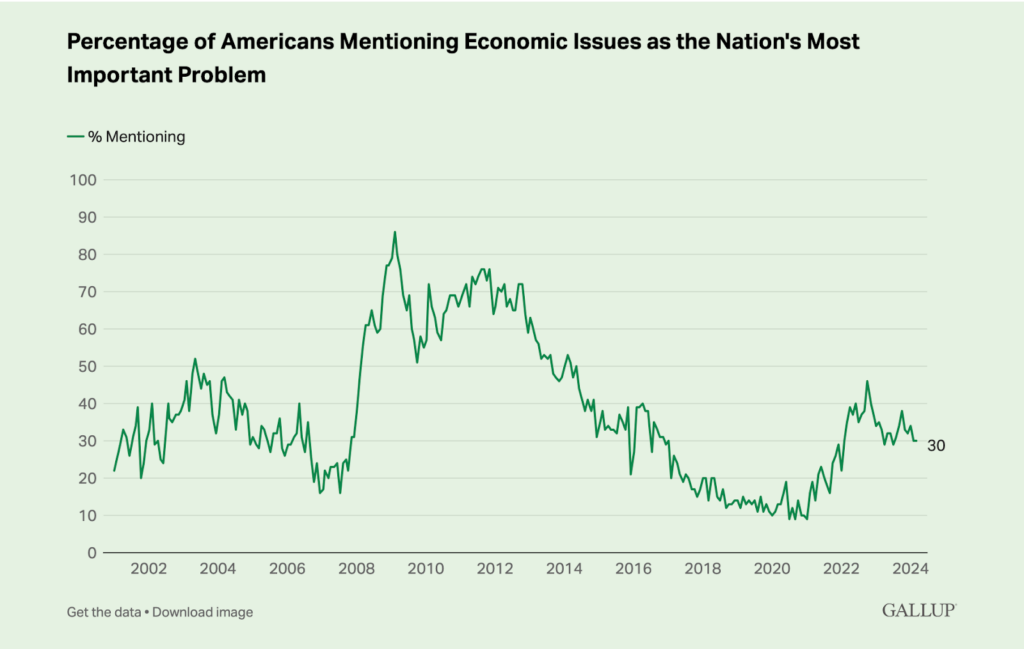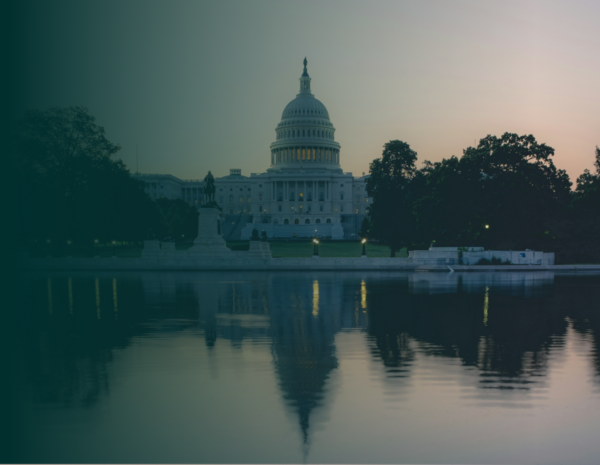There are six months until the 2024 general elections in the United States. While the presidential election will garner the most attention, other key elections are also taking place in November. Americans also elect thousands of officials at the local and state levels, alongside all 435 U.S. representatives and a third of the U.S. Senate. These elections will provide voters to respond to pandemic response, the changing economy, and escalating conflicts abroad, among other issues. The results will determine whether governments can continue implementing their policy agendas from the past few years. If not, new majorities will have the opportunity to affect change.
Many state legislators have already begun wrapping up their last legislative session. Now, they’ll head out on the campaign trail. Still others in other states and Congress will slow down their work as we approach November. On both the state and federal levels, lawmakers generally avoid acting on significant legislation before an election. Most will rely on the work they’ve accomplished over the last two years as they campaign. At the same time, we live in unpredictable times. There is always the chance that surprises or crises could spur significant legislative action over the next six months.
In this blog, we preview the electoral map at a high level. We also assess recent developments and ongoing debates that may impact what candidates say and what voters respond to.
Key Races in the 2024 Elections
Federal Level
At the federal level, the Presidential race leads the ticket. For the major parties, 2024 is shaping up to be a rematch of 2020. Joe Biden and Donald Trump are the presumptive nominees for their respective parties. Unlike in 2020, however, polling shows that a significant number of registered voters are considering third-party candidates. This includes Robert F. Kennedy Jr., Cornel West, and Jill Stein.
In the House of Representatives, Republicans will attempt to hold on to their extremely narrow majority. Democrats will seek to flip control of the chamber for the third time since 2020.
At the Senate level, Democrats must win several close races to maintain their small majority. This also means that Republicans have the opportunity to pick up key seats, particularly in West Virginia and Montana. Races in Arizona, Nevada, and Ohio are “toss-ups,” where Democratic incumbents could lose.
State Level
Eleven states will elect a Governor this year, and Republicans appear likely to hold on to their 27-23 lead in governorships. Among this group, gubernatorial races in North Carolina and New Hampshire are expected to be the closest.
Seventy-eight percent of all U.S. state legislative seats are up for election in November. In many, legislative power is likely to shift in one or both chambers. Arizona, Michigan, New Hampshire, and Pennsylvania appear most poised for this change.
Finally, voters in 33 states will make selections for their state supreme courts. Only some states operate with an electoral process for their supreme court justices. The style of these elections (e.g. partisan, non-partisan, retention) can differ across states. In the years since the U.S. Supreme Court overturned Roe v. Wade, these races have garnered increased attention from the media and organizers alike. State courts have been busy over the past few years responding to novel executive and legislative actions taken by states. In particular, they’ve responded to issues related to abortion, education, and cultural topics.
The Policies and Issues that will Impact the 2024 Elections
Elections are, of course, about more than the issues. Voters may select candidates based on partisan loyalty, personality, or leadership qualities. They may do so regardless of their alignment with the candidates’ positions. However, a lawmaker’s record on the issues naturally plays a significant role in determining the outcome of an election. Below, we examine key issues that will be at the forefront of the minds of candidates and voters alike.
Economy
Americans cite economic issues as the most important problem facing the country today. This has been true for the past twenty years. What’s interesting today is that far more respondents indicate a focus on the economy than in 2020.

The “economy” is a broad, oft-overused term. Concerns surround the cost of living, inequality, unemployment, taxes, and many other issues. Assessing the economy’s impact on elections is complicated. So many factors, both within the government and without, determine the “success” of the economy. It can be difficult to connect one policy’s impact on this broad area.
Voters are clearly concerned about the state of the economy. Perhaps a negative signal for President Biden, respondents indicate their concern despite consistently positive indicators of national economic performance like GDP growth, the unemployment rate, and the stock market. Negative attitudes about the economy prevail, despite positive indicators. These concerns will likely remain unchanged until November, regardless of continued positive indicators. However, a departure from these trends, like a market crash or unfavorable data, could further dampen the national sentiment about the economy.
One common indicator of economic strength is the inflation rate. Recent reporting shows that the year-over-year inflation rate is now below 4%. This is an improvement from recent years but not as low as the President or the U.S. Federal Reserve would like to see it. Significant progress on inflation could shift the minds of the many voters. As coverage and consideration of the economy is often nationalized, this issue could play the biggest role in the election.
Housing
As we covered in late 2023, housing has been at the top of state legislative agendas for several years. Key housing issues have driven citizen to demand action from their lawmakers, including:
- Increasing home prices
- Economic tension between landlords and tenants
- Homelessness
Lawmakers have responded with funding for housing development, rental assistance, and support programs for unhoused individuals. However, more robust fixes will require long-term, consistent investment. As a result, lawmakers are pointing towards yet-to-be-developed housing or very new assistance programs as proof of their commitment to resolving housing issues.
Housing is a very local issue by nature. As such, nationwide concerns over housing encompass a myriad of issues with many different solutions. It’s worth tracking the areas where housing prices have increased most, and where homelessness has risen, to see how voters respond to efforts to resolve a housing crisis.
Education
Education policy is another local issue that has been nationalized. This policy area has received greater attention in the aftermath of the COVID-19 pandemic. In this context, past debates over education funding and charter schools continue. However, they’ve also been joined by issues from the “culture wars.” States are increasingly legislating school curricula, discussions of race and gender, and staffing.
These issues are not novel. In many ways, their manifestation repeats past fights over the purpose and structure of schooling. Education policy came to the fore following Virginia Republicans’ strong performance in 2021. Political pundits gauged that their performance was buoyed by a growing “parental rights” movement. November is the first opportunity for many voters to respond to the policies enacted in the wake of those Virginia elections. The results will serve as an opportunity for the media to re-assess whether Republicans’ focus on eliminating DEI initiatives and Critical Race Theory was a winning strategy.
Looking Ahead: Key Issues and Races in the 2024 Elections
Recent elections in the United States have shown just how narrow a victory can be. In our current political climate, electoral victory is impactful regardless of the margin of victory. The 2016 presidential election was famously close. Only a few thousand votes in some key states could have ushered Hillary Clinton into the White House. Following his narrow victory, President Trump drastically altered the Supreme Court in a way that will impact Americans for decades. On the state level, a string of general and special elections in Pennsylvania have taken place since 2022. The outcomes of these elections have helped Democrats maintain a small majority in the state’s House of Representatives, which has had significant implications for political power in the state.
Countless factors determine the outcome of an election. This is particularly true for those as close as those mentioned above. At the end of the day, elections are a fundamental principle of representative democracy. Voters should be aware of the policy decisions made by their representatives. They can use their vote to reward legislators for those decisions. They can also replace them with a successor more aligned with their policy preferences. This core principle guides our work at Plural. We aim to make legislative data easier to access so that voters, advocacy organizations, researchers, and legislative officials can all easily access the legislative process and act in the best interest of our democracy.
Get Started With Plural
Plural helps concerned citizens and public policy teams alike get and stay ahead in the public policy landscape. With Plural, you’ll:
- Access superior public policy data
- Be the first to know about new bills and changes in bill status
- Streamline your day with seamless organization features
- Harness the power of time-saving AI tools to gain insights into individual bills and the entire legislative landscape
- Keep everyone on the same page with internal collaboration and external reporting all in one place
More Resources for Public Policy Teams
Key Benefits of AI for Lobbying & Advocacy
Want to be able to explain the benefits of artificial intelligence for lobbying and advocacy? Everyone is talking about AI. And we get it, it’s not simple to understand. But as an AI-powered organization, Plural is here to help you get the most out of advancements in AI to make your job as a policy […]
2025 Legislative Committee Deadlines Calendar
Staying on top of key deadlines is manageable in one state, but if you’re tracking bills across multiple states, or nationwide, it quickly becomes overwhelming. That’s why we created the 2025 Legislative Committee Deadlines Calendar. Stay ahead of important dates and download our calendar today. Get started with Plural. Plural helps top public policy teams get […]
End of Session Report: Florida 2024 Legislative Session
The 2024 Florida legislative session saw significant activity in the realm of insurance and financial services, reflecting key themes of consumer protection, market stability, and regulatory modernization.



